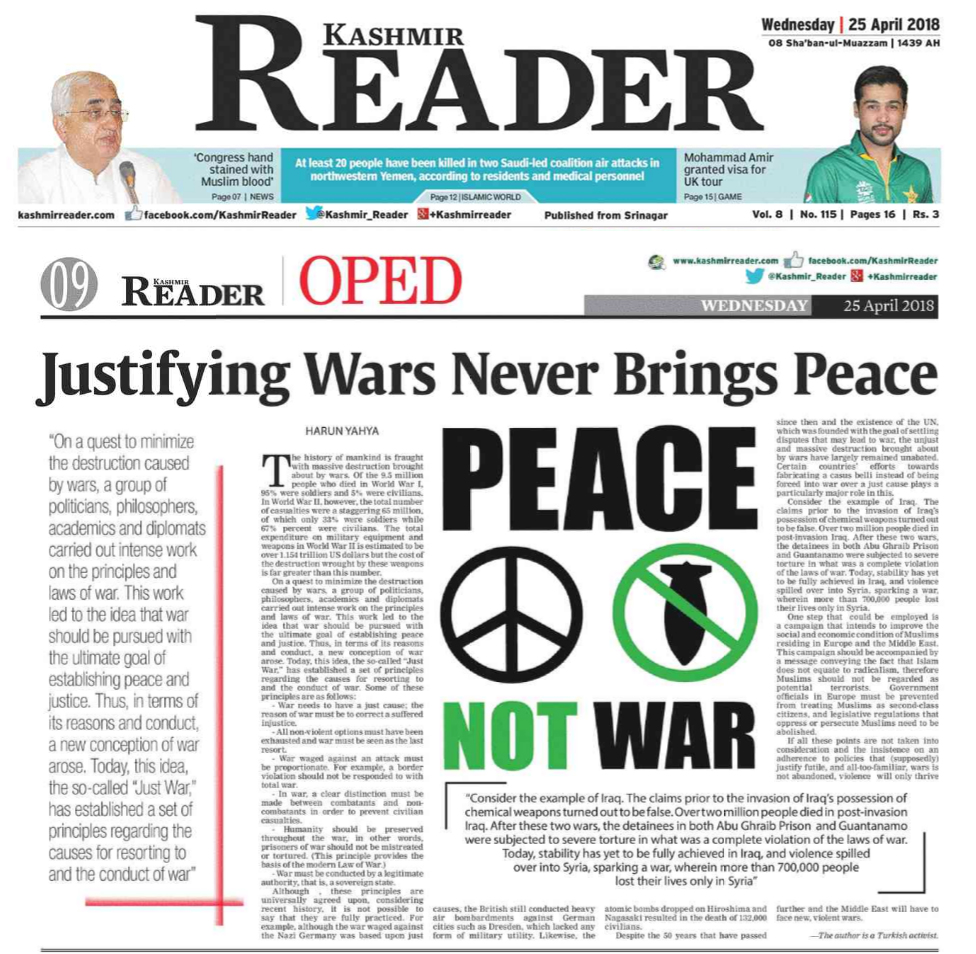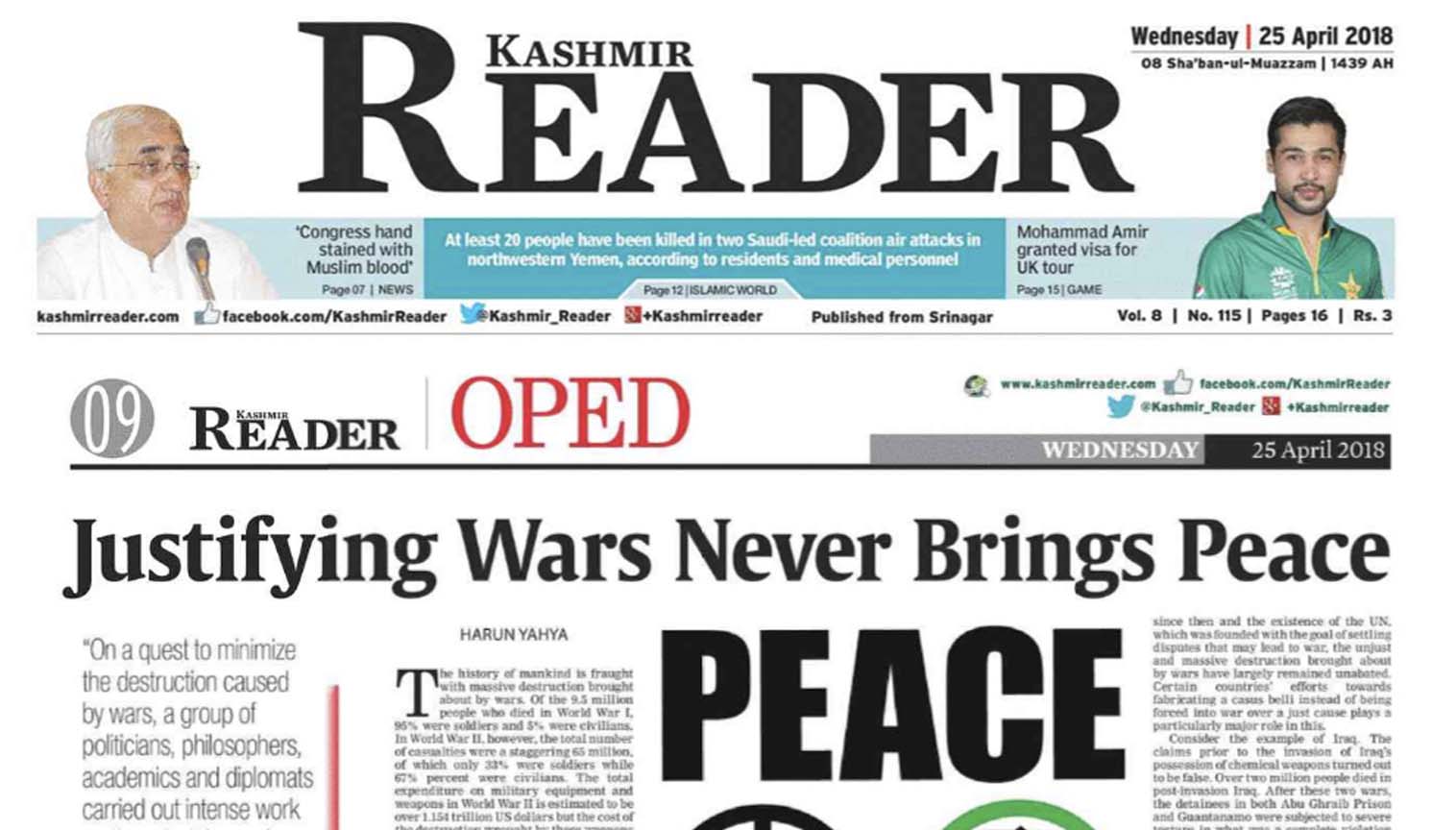
The history of mankind is fraught with massive destruction brought about by wars. Of the 9.5 million people who died in World War I, 95% were soldiers and 5% were civilians. In World War II, however, the total number of casualties were a staggering 65 million, of which only 33% were soldiers while 67% percent were civilians. The total expenditure on military equipment and weapons in World War II is estimated to be over 1.154 trillion US dollars but the cost of the destruction wrought by these weapons is far greater than this number.
On a quest to minimize the destruction caused by wars, a group of politicians, philosophers, academics and diplomats carried out intense work on the principles and laws of war. This work led to the idea that war should be pursued with the ultimate goal of establishing peace and justice. Thus, in terms of its reasons and conduct, a new conception of war arose. Today, this idea, the so-called “Just War,” has established a set of principles regarding the causes for resorting to and the conduct of war. Some of these principles are as follows:
– War needs to have a just cause; the reason of war must be to correct a suffered injustice.
– All non-violent options must have been exhausted and war must be seen as the last resort.
– War waged against an attack must be proportionate. For example, a border violation should not be responded to with total war.
– In war, a clear distinction must be made between combatants and non-combatants in order to prevent civilian casualties.
– Humanity should be preserved throughout the war, in other words, prisoners of war should not be mistreated or tortured. (This principle provides the basis of the modern Law of War.)
– War must be conducted by a legitimate authority, that is, a sovereign state.
Although, these principles are universally agreed upon, considering recent history, it is not possible to say that they are fully practiced. For example, although the war waged against the Nazi Germany was based upon just causes, the British still conducted heavy air bombardments against German cities such as Dresden, which lacked any form of military utility. Likewise, the atomic bombs dropped on Hiroshima and Nagasaki resulted in the death of 132,000 civilians.
Despite the 50 years that have passed since then and the existence of the UN, which was founded with the goal of settling disputes that may lead to war, the unjust and massive destruction brought about by wars have largely remained unabated. Certain countries’ efforts towards fabricating a casus belli instead of being forced into war over a just cause plays a particularly major role in this.
Consider the example of Iraq. The claims prior to the invasion of Iraq’s possession of chemical weapons turned out to be false. Over two million people died in post-invasion Iraq. After these two wars, the detainees in both Abu Ghraib Prison and Guantanamo were subjected to severe torture in what was a complete violation of the laws of war. Today, stability has yet to be fully achieved in Iraq, and violence spilled over into Syria, sparking a war, wherein more than 700,000 people lost their lives only in Syria.
One step that could be employed is a campaign that intends to improve the social and economic condition of Muslims residing in Europe and the Middle East. This campaign should be accompanied by a message conveying the fact that Islam does not equate to radicalism, therefore Muslims should not be regarded as potential terrorists. Government officials in Europe must be prevented from treating Muslims as second-class citizens, and legislative regulations that oppress or persecute Muslims need to be abolished.
If all these points are not taken into consideration and the insistence on an adherence to policies that (supposedly) justify futile, and all-too-familiar, wars is not abandoned, violence will only thrive further and the Middle East will have to face new, violent wars.
Adnan Oktar's piece in Kashmir Reader (India):
https://kashmirreader.com/2018/04/25/justifying-wars-never-brings-peace/


